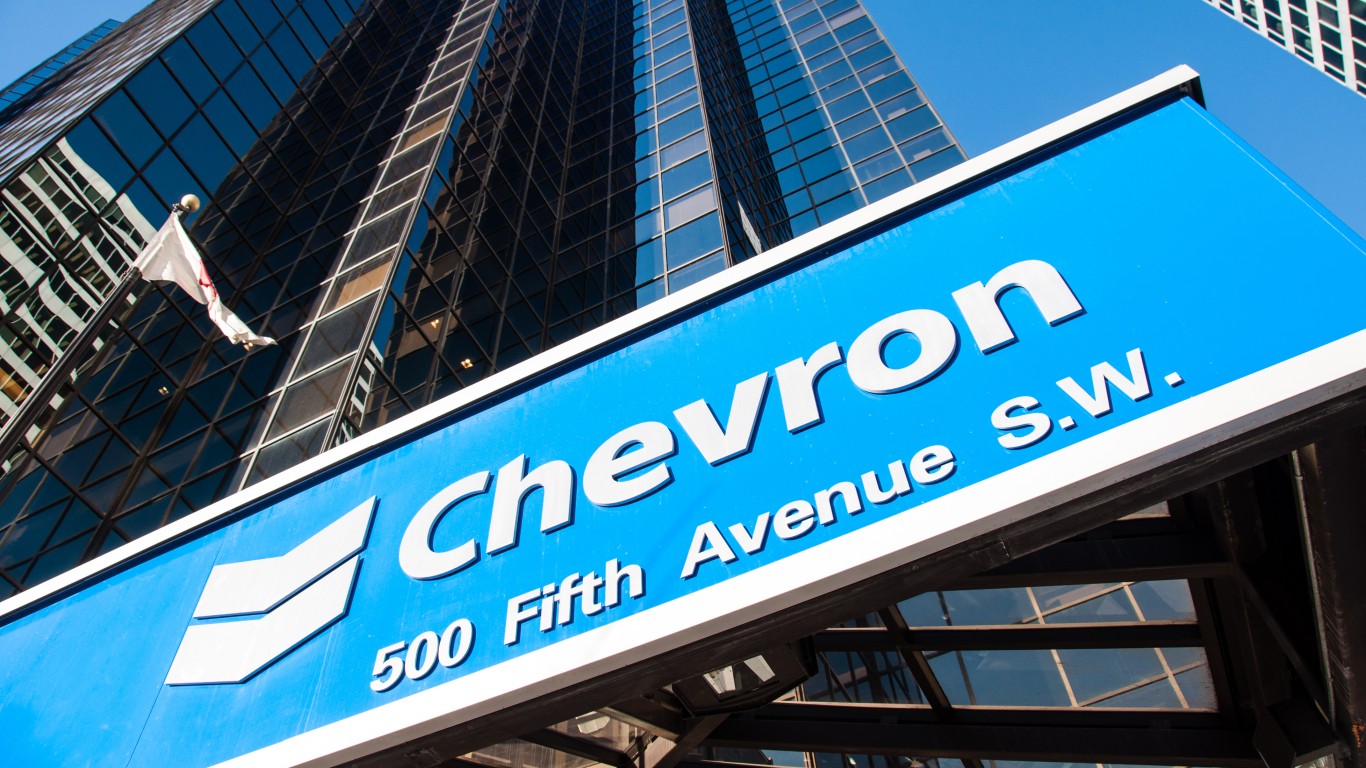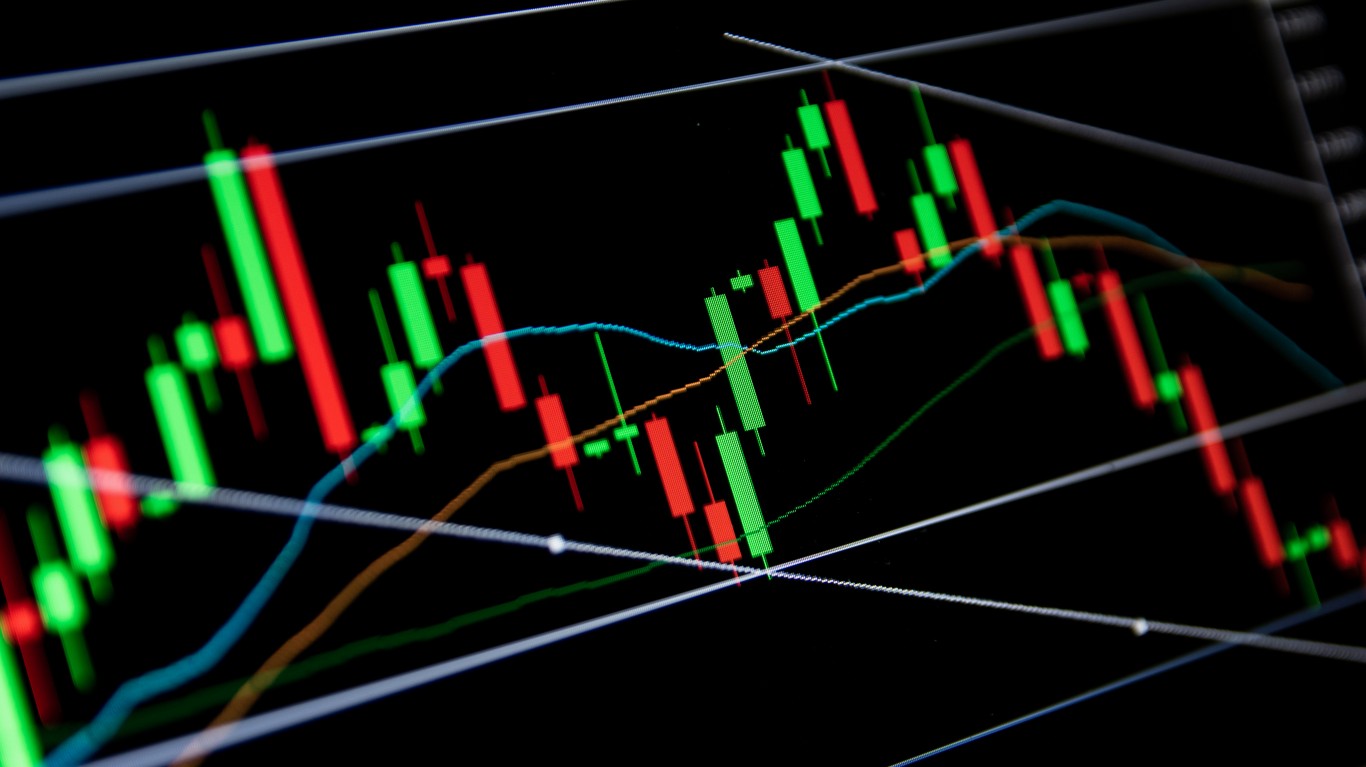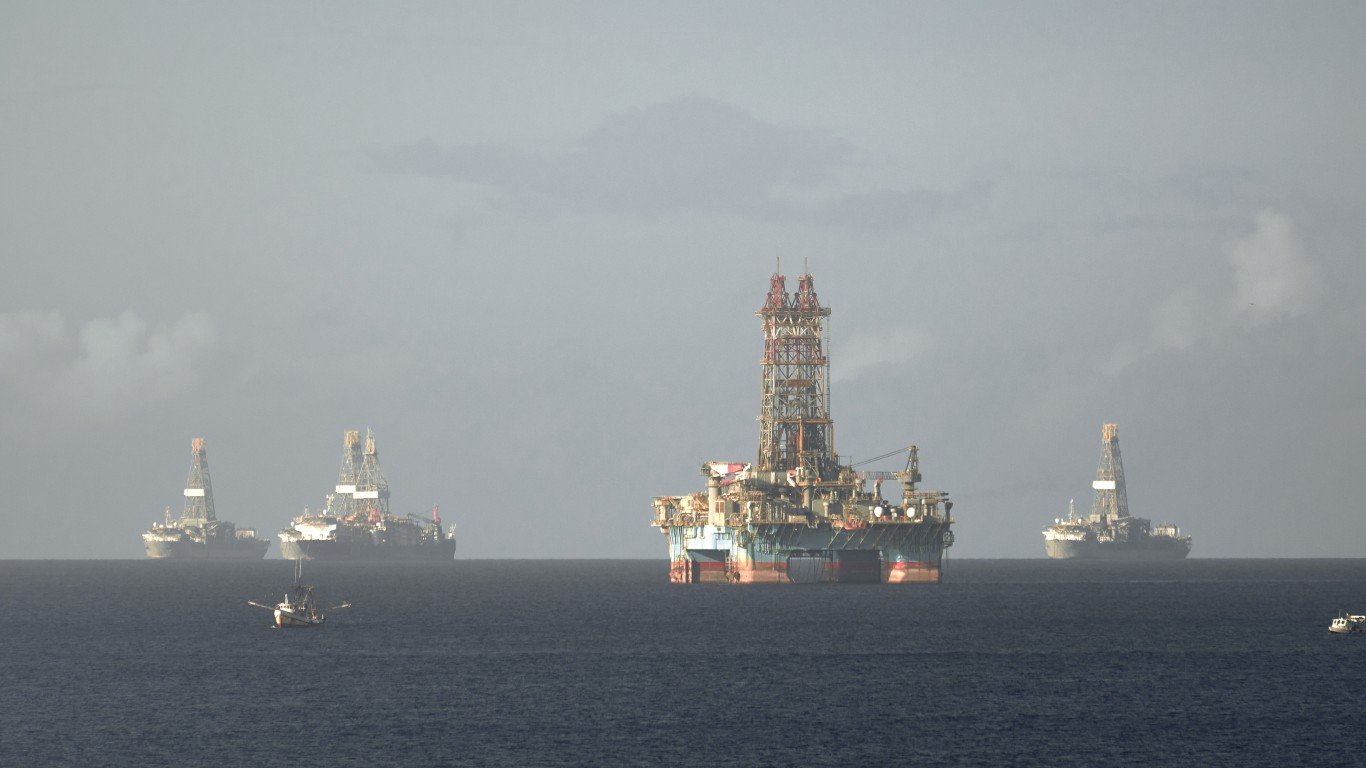

Chevron (NYSE: CVX) is one of the most important companies in the United States energy sector and is one of the most talked-about investments in media. Due to primarily dealing in oil and natural gas, Chevron’s future is under scrutiny from the general public and investors alike. Today, we’re going to look at some of the reasons that investors may want to avoid Chevron. Does this mean that we think Chevron is doomed? Not at all, but looking at these questions can help gauge future decisions and maybe cause people to think twice before betting big.
To compile this list, 24/7 Wall Street used recently posted news from various media outlets and government sources, along with some macro-level analysis via editorial discretion (an informed and opinioned view on what we think the future holds). Let’s look at Chevron and see all the reasons to possibly avoid it!
1. Recent Performance Issues

Every company has some bad days, but Chevron isn’t having a good year so far (down around 17% in 2023). This is certainly strange, especially considering the energy boom the United States is currently in. LNG (liquified natural gas) is exploding due to new shale technologies, and Chevron is set to be one of the primary exporters of American LNG.
The real reason is likely linked to the success of the American market as a whole. As supply goes up, demand goes down. Right now, there has never been more oil produced in the United States, and Russian competition has taken a massive hit as they shift their output to fuel their own war efforts in Ukraine. That, combined with ramping domestic efforts in the U.S., means massive surpluses. This is good for consumers, but for Chevron, this surplus just means reduced profit margins.
Even more, recent acquisitions from Chevron (Hess) mean diluted shares. Plus, investors can be a bit wary when a company takes on billions of dollars in debt, even if it’s to leverage a better future. Risk and uncertainty impact share prices, plain and simple. For some, this could just mean getting Chevron for a great value, but obviously, nobody is an oil oracle.
2. Large-Scale Divestment

Look, we aren’t saying that you should copy everything that Warren Buffet does, but we would be remiss not to include the fact that Buffet recently divested a large portion of his Chevron portfolio. Recently, Berkshire Hathaway enacted complete exits from Activision Blizzard Inc (14.6 million shares) and General Motors (22 million shares). Chevron wasn’t among the list of companies that were totally dropped, but BH did cut around 12.8 million shares, which at the time was around a 10% decrease in total ownership.
Does the Oracle of Omaha know something about oil that we don’t? Well, probably. But outside of that, there is something valuable in knowing what kinds of moves the big dogs are making at the top. Additionally, Chevron was just downgraded by TD Cowen from “outperform” to “market perform,” which could add another variable to things.
If there are further divestments from ownership, it could be a major red flag for long-term holders to get out ASAP. That being said, there is always the opportunity to get some incredible value out of Chevron while people panic sell.
3. Past and Future Oil Spills

Environmental consciousness is at the forefront of global discussions, and energy companies are undergoing some legitimate scrutiny for their ecological impact. Oil and gas are two of the most contentious commodities in the world from an environmental perspective, and Chevron is primarily an oil and gas company. There are legitimate issues to look at regarding fossil fuels, as well as branding/image ones.
One of the outright problems with oil companies is spills. These incidents not only destroy ecosystems but they have a severe impact on a company’s reputation. Now more than ever, investors are compelled to assess the frequency and severity of such events, gauging whether they represent isolated incidents or systemic issues in Chevron’s operational practices. For reference, Chevron was responsible for around 1,930 barrels of oil spilled in 2022. Before that, a massive oil spill in 2021 released over 12,000 barrels. For a company like Chevron, a single spill means a destroyed reputation and image for years, along with a stock price dropping like a rock.
4. Global Political Instability

Truthfully, political instability can equally harm and benefit Chevron. Let’s look at the negative.
Chevron’s recent purchase of Hess was really for one thing: massive offshore reserves in Guyana. Guyana, however, has recently been told that half of its territory is actually the property of Venezuela, likely because Venezuela’s oil reserves are huge but generally low-quality. Guyana’s, however, are extremely high-quality. A border dispute in the region could slow or halt production, making the Hess deal ($7 billion or so) a bust.
These sorts of disputes can impact overseas oil production and trade routes, resulting in losses for Chevron.
5. Bad PR

Bad PR isn’t great. Sure, there are unsaid branding issues with Chevron, namely the fact that they are an oil and gas company in a world that doesn’t like oil and gas. Still, they haven’t really been helping their image, particularly with some of their releases. For example, Chevron literally blamed the state of California for its anti-gas policies, then did a $4 billion write-down in 2023’s Q4 reports for it.
They called the state’s policies “adversarial” and “burdensome” and then blamed the state for the high gas prices that were being passed off to consumers. We aren’t taking sides, but there could be some investor backlash for criticizing climate initiatives and blaming others for losses. On top of this, there isn’t a major effort from Chevron to popularize their alternative energy future, potentially pinpointing them as exclusively gas and oil. This could make them seem less flexible.
6. A Greener Future

On a more macro level, there is a changing tide of consumer sentiment towards fossil fuels. Green initiatives and a move to renewables aren’t on the horizon; it’s currently happening. Without massive breakthroughs in shale technology, we’d likely already see massive dropoffs in oil and gas outputs. Additionally, many car companies are announcing that their total electric fleets will be available by as early as 2030, along with many states implementing taxes and EV requirements. This is a massive threat to oil and gas, and Chevron will certainly need to adapt or die.
Currently, LNG is a huge future investment for the company. It’s the cleanest burning natural gas on the planet, and there is a lot of it. But surprise! Recent reports also show that LNG probably has a larger climate impact than literally burning coal. This is because LNG is mostly made up of methane, a greenhouse gas that is much more potent than carbon dioxide when in the atmosphere. In fact, the reports are so worrying that President Biden just announced a massive pause on LNG exports, pending further study into its long-term impact.
It doesn’t look like Chevron is going to be making investments into wind turbines anytime soon, but they do have plans for emerging technologies like hydrogen, carbon capture, and other renewable fuels.
Sponsored: Attention Savvy Investors: Speak to 3 Financial Experts – FREE
Ever wanted an extra set of eyes on an investment you’re considering? Now you can speak with up to 3 financial experts in your area for FREE. By simply
clicking here you can begin to match with financial professionals who can help guide you through the financial decisions you’re making. And the best part? The first conversation with them is free.
Click here to match with up to 3 financial pros who would be excited to help you make financial decisions.
Thank you for reading! Have some feedback for us?
Contact the 24/7 Wall St. editorial team.



